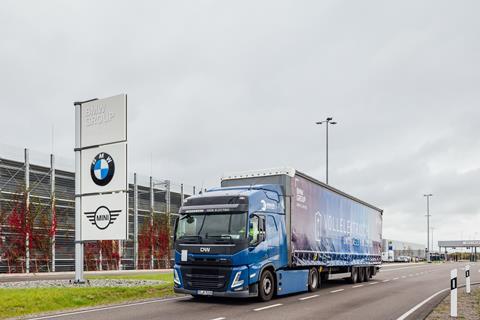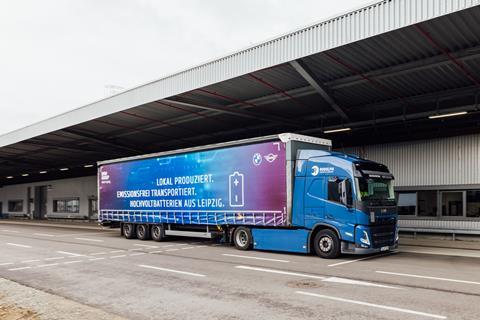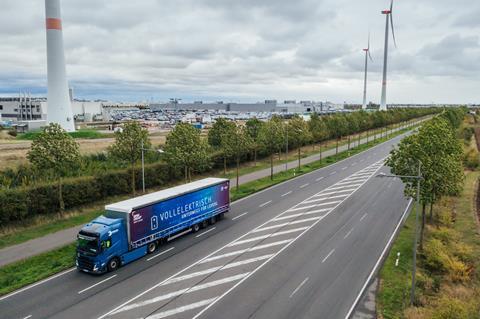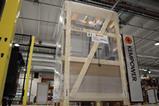BMW Group Plant Leipzig has deployed two electric trucks to transport components between its logistics centre and high-voltage battery production facilities. The trucks are expected to reduce CO2 emissions by approximately 9 tonnes annually compared to diesel alternatives.

Each truck completes up to a dozen eight-kilometre round trips daily, covering nearly 100 km per vehicle. The trucks transport battery cells and modules from the logistics warehouse to production halls, operating across three shifts.
The vehicles, manufactured by Designwerk, use lithium iron phosphate (LFP) batteries with a 340 kWh capacity. Charging to 80% takes approximately 1.5 hours, which is performed during driver breaks. The manufacturer states the batteries can be recharged about 3,000 times.
“We are delighted to be undertaking this journey with our longstanding logistics partner, the Rudolph Logisitk Gruppe,” said Plant Director Petra Peterhänsel.

The Leipzig facility, which began e-component manufacturing in 2021, now produces high-voltage batteries for several BMW models, including the MINI Countryman Electric, BMW iX1, BMW iX2, BMW i4, BMW i5, and BMW iX. The plant operates with approximately 1,000 employees in battery production across five cell coating lines, three module production lines, and two high-voltage battery assembly lines.
BMW Group has invested over €900 million in the Leipzig plant’s e-component production facilities, which occupy 150,000 square metres and can produce up to 300,000 high-voltage batteries annually.
The electric truck initiative is part of BMW Group’s Green Transport Logistics Project, which aims to reduce emissions across its production and sales network. The company is also exploring other transportation alternatives, including biofuels and hydrogen fuel cell technology, targeting a 40% reduction in lifecycle co2 emissions by 2030 compared to 2019 levels.



















